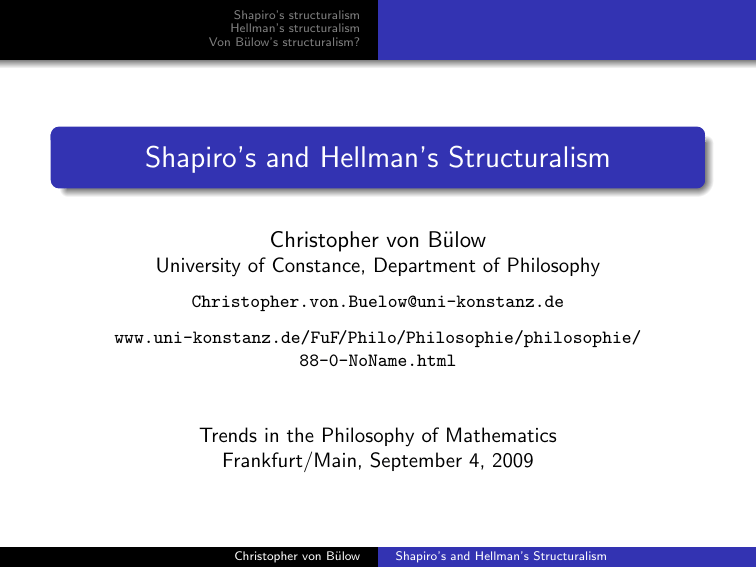“There are two tragedies in life. One is not to get your heart’s desire. The other is to get it.” – George Bernard Shaw
I sit here at 1am writing this essay. I put in a full day at the office, spend hours commuting to and from work, and then enjoy time with my family over dinner and a movie. I work on my finances, do some minor chores around the house and then retire to my study to read and write. I sip on a glass of wine and settle into a relaxing peace that only comes late at night among my books which force me to reflect on why I forego much-needed rest, rebelling against the requirement my bourgeois lifestyle has placed on me. My immediate, placating rationale for my rebellion is that I love philosophy—which I do. But that’s not it. Ultimately its because I want my life to mean something beyond mere being in the world. I want my life to mean something—however small–to the wider world in order to somehow flaunt the standard-issue fact that I merely spent time on this planet. It’s an ineffable pull to expand beyond myself, if such a thing is possible, and become something more than common. But the yearning is a black hole. The more of my life I throw into it, the more it demands. It’s insatiable and that insatiability is the ultimate human paradox. We are mortal animals with an inevitable expiration date and we have the unenviable capacity to know it.
 There are both religious and non-religious interpretations of this struggle.1 But some thinkers have recognized a common thread that cuts along the religious axis. They have seen this paradox as the battle between what we are and what we strive to become. Our rational part demands that we acknowledge our animality and the place such creatures have in the world. Eat well, exercise, don’t be a burden and help where you can, raise the next generation, and when its time to go, leave the place pretty much as you find it and you can ensure a well-attended eulogy. This is what we are, this is our essence and we must deal with it. But to be human is to be dissatisfied with this cold, common evaluation. We are beings in the world who have the ability to make choices that shape what we can become. We believe our future is not determined and that the inexorable laws of the universe can be heated just enough by our will to allow us to bend them and shape them into what we desire. Ultimately, the universe wins but in our short time here, we strive to become and not merely be. We work towards a kind of transcendence in the constant battle against finitude. This interpretation has broadly been labeled existentialism and the general framework has had strong religions and secular proponents.
There are both religious and non-religious interpretations of this struggle.1 But some thinkers have recognized a common thread that cuts along the religious axis. They have seen this paradox as the battle between what we are and what we strive to become. Our rational part demands that we acknowledge our animality and the place such creatures have in the world. Eat well, exercise, don’t be a burden and help where you can, raise the next generation, and when its time to go, leave the place pretty much as you find it and you can ensure a well-attended eulogy. This is what we are, this is our essence and we must deal with it. But to be human is to be dissatisfied with this cold, common evaluation. We are beings in the world who have the ability to make choices that shape what we can become. We believe our future is not determined and that the inexorable laws of the universe can be heated just enough by our will to allow us to bend them and shape them into what we desire. Ultimately, the universe wins but in our short time here, we strive to become and not merely be. We work towards a kind of transcendence in the constant battle against finitude. This interpretation has broadly been labeled existentialism and the general framework has had strong religions and secular proponents.
Greek philosophy is based on the examination of essence. It attempts to analyze the way things are as the basis for what they can become. Put simply this approach places essence before existence. In terms of the human condition, it sought to first understand our essential properties and from there establish our contingent ones. Existentialism is the philosophy that this approach is, to our detriment, utterly wrong: it is existence that precedes essence. The essence of being human just is to live, to exist, to become. The person that lives solely based on the rude functioning of the animal—the thing that eats, sleeps, has sex, produces waste, and repeats the cycle day after day—isn’t a human. He is little more than an animal. To be human is to transcend the mere functions of the body and mind and to become something more. But making this move has a frightening consequence. It unleashes humanity into a chaotic world that, as Hobbes observed, is solitary, poor, nasty, brutish and short. To be human, is to fully embrace that reality and acknowledge that each of us is that poor player that struts and frets his hour upon the stage to, at the end, be heard no more. To live existentially is to face that bracing truth and yet strive to become.
Sola fides quarens intellectum
The major theme of this series is that modern religion is made up of two seemingly incompatible epistemologies and it is the social implications of this amalgam that is driving much of the modern debate over religion. Modern faith is grounded on a commitment to a person and as such is thought to be isolated from any rationalist critique. At the same time, people of faith claim that their beliefs are true and as justified as any axiom in science. Religious belief, I’m claiming, is not formed or grounded in reason but many believers also want to insist that it is certainly not unreasonable. As I’ve stated previously, religious belief is grounded existentially. But what does this mean exactly?
Existentialism, almost by definition, eludes analysis. Using language to describe existentialist thought, even by existentialists themselves, is difficult if not impossible. Existentialism is not a system, does not have creeds or a core set of doctrines, it’s resistant to slogans and labels. It is elusive, changeable, and essentially individualistic. William Barrett, who has attempted to gather the many loose threads of existentialist thought and perhaps done so more successfully than any other writer, describes existentialism not as a typical philosophy or a spectrum of philosophies, but as a philosophy that transcends philosophy. It is the “individual human personality itself struggling for self-realization.”2 One does not arrive at existentialism as a conclusion to a set of arguments but lives “existentially.” Existentialism is the state of being in the world and the process of becoming a unified individual.
or a spectrum of philosophies, but as a philosophy that transcends philosophy. It is the “individual human personality itself struggling for self-realization.”2 One does not arrive at existentialism as a conclusion to a set of arguments but lives “existentially.” Existentialism is the state of being in the world and the process of becoming a unified individual.
The individual is the start and end of existentialist thought and is why it serves such an important role in grounding faith. Perhaps existentialism is the only ideology that could fulfill this role. Thorough-going existentialists will insist that every worldview must start and end with the individual and one finds it difficult to argue against this conclusion. Somewhat obviously, each person gets at his or her world through their own perceptions which are colored by their dispositions, environment, and other beliefs. In other words, worldviews are not things that exist apart from the individuals that possess them. And it’s fairly safe to say that no two persons have ever shared or will ever share the same worldview. A key existentialist insight is that no doxastic practice makes sense apart from the individual.
As we’ll see later, Kierkegaard attempted to show (not argue) how such a view not only fits within the Christian worldview but how the Christian worldview doesn’t exist without it. But the focus on the individual sets the stage for the idea that religious belief is grounded inwardly and then expressed not vice versa. The individual chooses to put his or her faith in God, chooses to trust Him, chooses to give her life over to Him. Christianity is defined (if it can be defined) solely in terms of these choices and thus is not a product of some public, rational, exercise. The true believer is one that lives for, not merely thinks about God. He is the servant and the lover, not the philosopher or the scientist. Many within modern religious circles resonate with these ideas though they are very uncomfortable with the dichotomy. Christianity, for example, allows one to be both a servant and a scholar and there is no need to choose between the two they say. And this is where the contemporary rub comes.
Copyright © 2010 Philosophy News Service
1. Religious interpretations from Christianity to Buddhism (if the latter should rightly be called a religion) have provided a transcendental framework in which to understand this transcendental striving. Many theistic religions, for example, describe it as the soul’s latent desire to be one with its creator. It’s a “divine thirst” that can only be fully satiated when the soul leaves the body and is unified with God but can partially be slaked in this life by living for God (see 2 Corinthians 5: 6-9 in the Christian Bible for example).
2. (Barrett, W. (1963). Irrational Man: A Study in Existential Philosophy. Garden City, New York: Anchor Books., p. 13)
Copyright © 2010 Philosophy News
| << Previous in series |
Next in series >>
|








